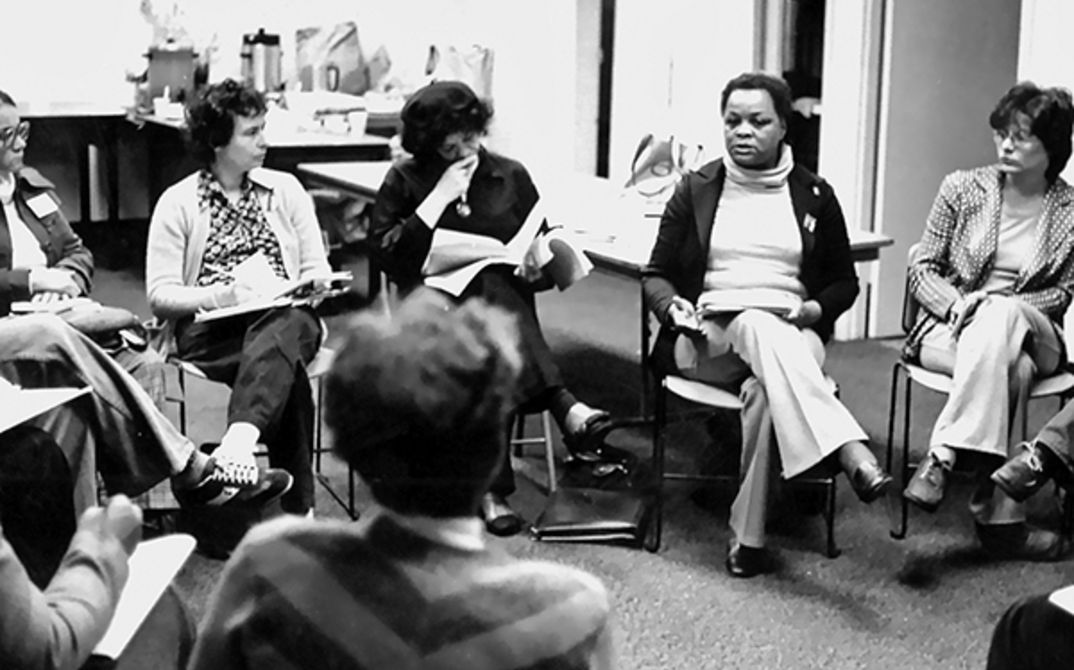The power to change
Women in American society today have been ignored, isolated and made to think that their problems are personal – that they evolved out of their own individual shortcomings.
THE WOMAN’S FILM tells a different story. The women interviewed feel that their problems are caused by the very social structure of our society. They are oppressed as women – socially, economically, psychologically.
The interviews are with women who work on jobs outside and inside the home, welfare mothers and sound women. They discuss the personal problems they have encountered as women at home and on their job. They speak out on issues which affect their lives: the war, welfare, marriage, and men.
Each woman talks not only about the experiences which led her to question her role as a woman, but also about what she is doing to change her condition. These women are involved in such organisations as welfare rights, children’s breakfast programmes, labour unions, PTAs and women’s liberation groups.
The film allows women to identify with the experiences and feelings of the women in the film and to gain a solid understanding of the solutions they have chosen. It conveys the idea that women are strong when united, and that when they work together and support each other, they have the power to bring about meaningful and necessary changes in this country.
The Newsreel collective
THE WOMAN’S FILM is unique in that it was scripted, filmed and edited entirely by women. The crew, Judy Smith, Louisa Alaimo and Ellen Sorrin, are part of San Francisco Newsreel, a non-profit organisation of young filmmakers who produce and distribute documentary films.The filmmakers felt that the established media have discredited the women’s movement by focusing attention on sensational news items rather than on the legitimate grievances and demands of women.
THE WOMAN’S FILM centres primarily on poor and working women. After talking with several women’s groups in the Bay Area, the filmmakers chose several women to be interviewed. A script was written on the basis of the preliminary interviews and was presented to the groups and the Newsreel staff for criticism and approval. Members of the film crew shared work in each area of production: fundraising (which went on throughout production), scripting, shooting and editing.
Newsreel attempts to dispel myths which have been created about students, radicals, blacks, poor people and women by presenting their views and explanations of events that are taking place in the country. The subject matter ranges from domestic issues – student unrest, the urban crisis, the labour movement, Third World struggles – to international affairs. These films are made in conjunction with people in the community and on the job. It is the people, directly involved, who speak out in Newsreel films.
(Newsreel-Films, No. 5, Catalogue)
‘Artistic Propaganda’. Liberated Women Take Up the Arts
Women's liberation activists are also expressing themselves in film. Judy Smith and Louise Alaimo of Newsreel, a collective of radical young filmmakers (male and female) with offices in New York and Boston as well as San Francisco, have just completed "Woman's Film," which will be released this month.
The 45-minute film features poor and working women, both black and white, speaking about the oppression they feel. The women pictured are active in community work and projects such as welfare rights, and the filmmakers view them as models for change. It is an engaging documentary, both because the women interviewed are interesting and the film is well-paced with music and collage effects. (…)
(Beverly Koch, San Francisco Chronicle: The Voice of the West, Tues., Feb. 2 1971)
